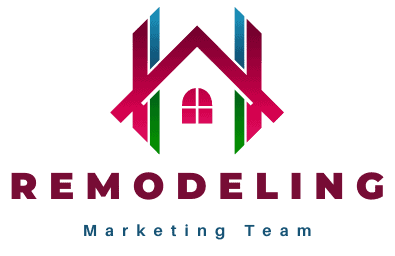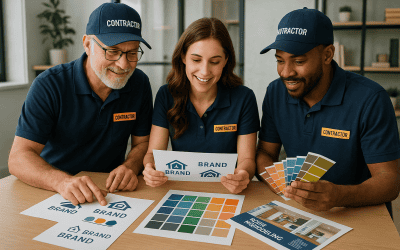In the ever-evolving landscape of the remodeling industry, navigating economic adversity while embracing technological progress represents a pivotal challenge for business owners. This article synthesizes valuable insights from a recent The Digital Remodeler podcast episode with Russ Glickman, a seasoned professional specializing in accessible living spaces, with the digital marketing strategies advocated by Carl Willis. It aims to guide remodeling business owners through leveraging economic downturns and technological advancements to fortify their operations, enhance efficiency, and secure sustainable growth.
Economic Resilience through Specialization
The first key lesson in economic resilience comes from Glickman’s approach to specialization. During economic downturns, consumer spending becomes more selective, heightening the importance of distinguishing your business from the competition. Specializing in a niche, such as accessible living spaces, not only sets your business apart but also targets a specific client base with unique needs, ensuring steady demand despite broader economic challenges.
Furthermore, tracking the Return on Investment (ROI) of marketing efforts becomes paramount in tough financial times. Allocating resources to high-yield strategies is crucial; digital marketing, with its measurable outcomes, offers a practical solution. Focus on strategies that enhance your online presence—SEO, content marketing, and social media—ensuring your services reach the right audience efficiently.
Controlling costs is another critical strategy during downturns. Streamlining operations without sacrificing quality, adopting cost-effective marketing strategies, and managing overhead meticulously can safeguard your business’s financial health, ensuring you not only survive but potentially thrive during challenging periods.
Technological Adaptation for Business Efficiency
The second pivotal area is the adoption and integration of technology into your business processes. Glickman’s experience during the COVID-19 pandemic highlighted the importance of remote meetings and virtual design sessions. Tools like Zoom have transformed client interactions, making consultations more flexible and accessible. For remodeling businesses, this means an opportunity to expand your client base geographically and enhance service convenience.
Artificial Intelligence (AI) and other tech advancements offer remodeling companies tools for efficiency and innovation. From AI-driven design software that helps clients visualize projects before commencement to project management tools that streamline operations, technology can significantly boost productivity and client satisfaction.
Brand Building for Lasting Success
A strong, recognizable brand is your business’s cornerstone, particularly in an industry as competitive as remodeling. Glickman’s journey underscores the significance of building a brand that stands for quality, reliability, and specialization. Achieving certifications, winning awards, and securing positive press coverage are all strategies that contribute to a solid brand reputation.
In today’s digital world, being findable and present online is non-negotiable. An updated, user-friendly website, active social media profiles, and engaging online content are essential for brand visibility and client engagement. These digital assets ensure your brand is where your clients are, looking for the services you specialize in.
Empowering Newcomers with Strategic Advice
For newcomers to the remodeling industry, the advice is clear: embrace a holistic approach to business management. Balancing legal, marketing, customer relations, and personnel management from the get-go sets a solid foundation. Leveraging social media, maintaining a dynamic website, and actively pursuing industry recognition can accelerate brand visibility and credibility.
Moreover, delegation and focusing on core strengths allow business owners to optimize their time and resources. Understanding your market, adapting to technological trends, and continuous learning are key to staying ahead.
Conclusion
The remodeling industry, with its unique challenges and opportunities, requires a strategic approach to navigate successfully. Learning from industry veterans like Russ Glickman and embracing digital marketing wisdom from experts like Carl Willis can equip business owners with the tools for resilience, innovation, and growth. By specializing, leveraging technology, building a robust brand, and adopting a comprehensive business management strategy, remodeling businesses can thrive in today’s competitive landscape.
This article is a collaboration between Carl Willis and OpenAI’s ChatGPT. Created on March 25, 2024, it combines AI-generated draft material with Willis’s expert revision and oversight, ensuring accuracy and relevance while addressing any AI limitations.






